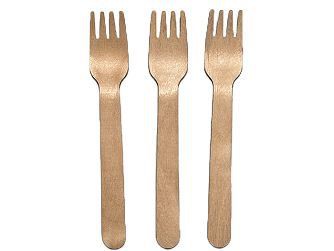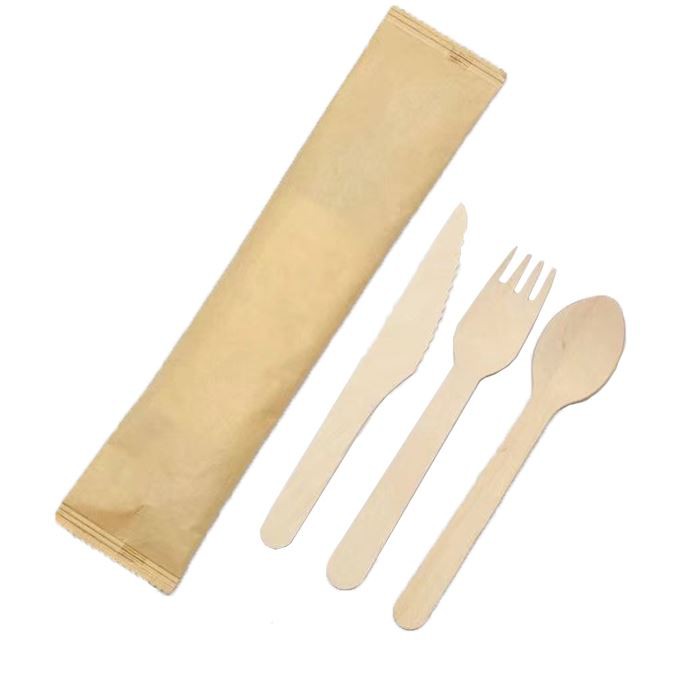Are wooden spoons suitable for children?
Aug 18, 2025
Are wooden spoons suitable for children? This is a question that many parents and caregivers often ponder. As a wooden spoon supplier, I have had the opportunity to delve into this topic in depth and would like to share my insights with you.
The Safety Aspect
One of the primary concerns when it comes to children's utensils is safety. Wooden spoons have several features that make them a safe choice for kids. Firstly, wood is a natural material. Unlike some plastic or metal utensils, it doesn't contain harmful chemicals such as BPA (bisphenol A), phthalates, or heavy metals. These chemicals have been linked to various health issues in children, including hormonal disruptions and developmental problems. When children use wooden spoons, they are less likely to be exposed to these potential toxins.
Secondly, wooden spoons are relatively soft compared to metal ones. This means that if a child accidentally hits themselves or others with a wooden spoon, the risk of injury is significantly reduced. The edges of wooden spoons are usually smooth and rounded, further minimizing the chance of cuts or abrasions.
However, it's important to note that proper maintenance of wooden spoons is crucial for safety. Wooden utensils can absorb moisture, which, if not dried properly, can lead to the growth of mold and bacteria. Parents should ensure that wooden spoons are washed thoroughly with mild soap and warm water after each use and then dried completely. Regular oiling with food - grade mineral oil can also help keep the wood in good condition and prevent it from cracking or splitting.
The Sensory Experience
Children learn about the world through their senses, and using wooden spoons can provide a unique sensory experience. The natural texture of wood is different from that of plastic or metal. It has a warm, organic feel that can be comforting to children. When they hold a wooden spoon, they can feel the grain of the wood, which adds a tactile dimension to their eating experience.
The color and appearance of wooden spoons are also appealing to children. The natural variations in the wood's color and pattern make each spoon unique, which can capture a child's imagination. This can make mealtime more enjoyable for them, potentially leading to better eating habits.


The Environmental Impact
In today's world, environmental consciousness is on the rise, and many parents are looking for eco - friendly options for their children. Wooden spoons are a great choice in this regard. Wood is a renewable resource, and when sourced sustainably, wooden utensils have a much lower environmental impact compared to plastic ones.
Plastic utensils are often made from non - renewable fossil fuels and can take hundreds of years to decompose in landfills. In contrast, wooden spoons are biodegradable. When they reach the end of their useful life, they can be composted, returning nutrients to the soil. As a wooden spoon supplier, I am committed to sourcing wood from well - managed forests to ensure that our products are both sustainable and environmentally friendly.
Types of Wooden Spoons for Children
There are various types of wooden spoons that are suitable for children. For example, Disposable Wooden Teaspoons are great for young children who are just starting to learn how to eat on their own. They are small and lightweight, making them easy for little hands to hold. These disposable options are also convenient for outings or when you don't want to worry about cleaning up.
Wooden Long Spoon can be useful for children who are transitioning to using utensils for soups or other liquid foods. The long handle allows them to reach into bowls without getting their hands dirty.
For a more complete cutlery set, Nontoxic Wooden Fork can be paired with wooden spoons. This gives children a more traditional eating experience and helps them develop the skills needed for using different utensils.
Potential Drawbacks
While wooden spoons have many advantages, there are also some potential drawbacks to consider. As mentioned earlier, wooden spoons require more maintenance than plastic or metal ones. They are more prone to staining, especially from colorful foods like berries or tomato sauce. Over time, the wood may also start to show signs of wear and tear, such as scratches or dents.
Another drawback is that wooden spoons may not be as durable as metal ones. They can break or split if subjected to excessive force or if they are dropped on a hard surface. However, with proper care, a wooden spoon can last a long time and still provide a great eating experience for children.
Conclusion
In conclusion, wooden spoons are generally a suitable choice for children. They offer safety, a unique sensory experience, and a low environmental impact. While they do require some extra care and may have a few drawbacks, the benefits far outweigh the negatives.
If you are interested in purchasing high - quality wooden spoons for your children or for resale, I invite you to contact me for more information and to discuss your specific needs. We can have a detailed conversation about the different types of wooden spoons we offer, pricing, and shipping options. Let's work together to provide children with safe, eco - friendly, and enjoyable eating utensils.
References
- "The Health Risks of BPA and Phthalates in Children's Products", Journal of Pediatrics and Child Health.
- "Sustainable Sourcing of Wood for Utensils", Forestry and Environmental Studies Review.
- "Sensory Development in Children through Everyday Objects", Journal of Child Psychology.
